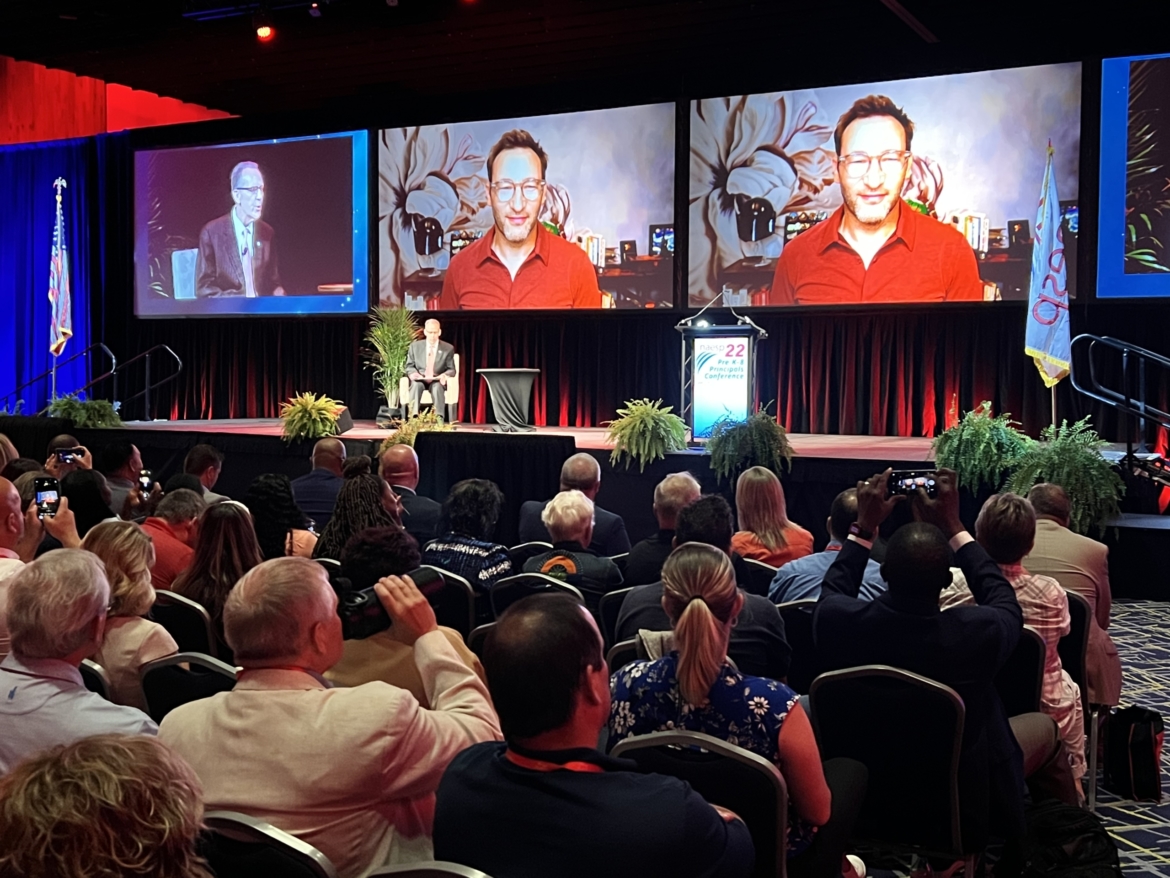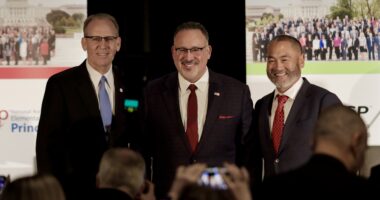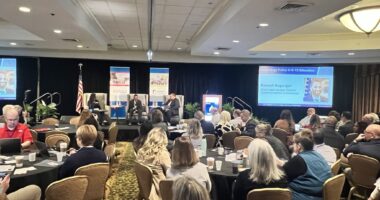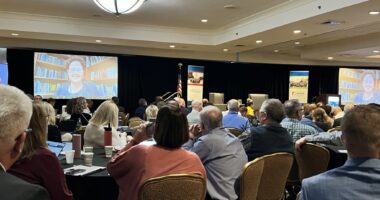Discovering Your “Why” as an Educator
Simon Sinek challenged attendees to discover their “why” on a personal level and as a school leader and use it to create positive change in schools, build trusting relationships, and grow as an educator and as a person.

The opening general session at the NAESP Pre-K–8 Principals Conference in Louisville was tailor-made for educators who live their “why” every day as leaders of learning communities. Simon Sinek, who literally wrote the book on the topic—Start with Why: How Great Leaders Inspire Everyone to Take Action—opened with a thought-provoking take: “We don’t get to create our ‘why;’ we get to discover it.”
In a live, virtual conversation, L. Earl Franks, Ed.D., CAE, NAESP executive director, served as a moderator and Kaylen Tucker, NAESP associate executive director, Communications, shared questions from the audience, as Sinek elaborated on the path to discovering our “why.”
We are all a product of how we were raised, said Sinek, and this has formed us into who we are today. As educators, we are helping to mold kids into who they will become one day, long after they leave our schools. The “why” typically is defined by the time we reach our teens, and it becomes the purpose, beliefs, and values we live by. Through exhibiting this, people will know who we are. Who you are is the sum total of the why, how, and who, said Sinek.
What’s Your “Why?” Ask a Friend
What’s the best way to find out your “why?” Find a friend—not a spouse or child—whom you love and who loves you. Call that friend you would reach out to if you needed something in the middle of the night. Then ask this simple question: Why are we friends? He stated that most people start by answering this question superficially, listing generic details that could apply other people, too. Dig down to find out what they believe is different about you.
Sinek shared what happened when he tried this with a friend. After asking that deeper question—what was different about him as a friend—one of Sinek’s friends told him that they could sit in the room with him and feel inspired. That is Sinek’s “why.” Your “why” is the value that you provide to other people and the world, he said. If you ask other friends, you will get the same exact answer.
Every human being has a “why” and wants to a purpose to drive them, said Sinek, saying something that surprised attendees: The “why” of teaching might be different than your “why” as an individual.
When asked how to use the why as a principal, Sinek recommended hiring people who are inspired to demand something big. People give away what their motivations are. Look at someone’s career and the decisions that they make. They should be following that meandering road to make an impact. Then, he made a comparison between politicians and how they could make a difference in education; they make promises to support education while campaigning, but they often don’t pursue those promises if they are not elected. When hiring, look for people whose paths show a passion for helping children, lifelong learning, and teamwork, for example–whatever skills align with your school’s mission and values.
Learn From Others to Grow
During the conversation, Sinek mentioned that a principal’s priority is to “take care of the people taking care of the people.” He compared school administrators to hospital administrators, who should be caring for the doctors and nurses so that they can take care of the patients. Is our job as school leaders to make sure our school faculty and staff are cared for so they be their best for their students. Sinek recommended that we start teaching leadership skills to each other: active listening, how to have an active confrontation, and how to have difficult conversations, for example.
Sinek also gave advice about what teachers could learn from other professions, or a “worthy rivalry.” When it comes to education, there are wins, but there is not winning. Learning about the strengths of other schools or educators will reveal to us our weaknesses. Once we discover those, we can work on them or hire people who are better at them than we are. If you find yourself envious of another school, find out who’s out in the front leading, and figure out how to translate them into your own school.
Sinek cautioned that the “dangerous part is copying them.” Don’t copy the superficial stuff like the ping pong table in the conference room. This discovery process is about human relationships and human dynamics. Good leaders become obsessed with human behavior and human relationships.
Adopt an Infinite Mindset
Sinek recommends that we adopt an infinite mindset where you want to leave things better than the way that you found them. In a finite game, there are known players, fixed rules, an agreed upon objective. With infinite games, you have known and unknown players, the rules are changeable, players can join whenever they want, and there’s no such thing as winning. When we approach leadership like we are playing to win, there is no finish line and there’s a decline. There is no such thing as the best school, and there is no end to this game.
Sinek posed this question: How do you judge the effectiveness of a school? In most cases, schools choose an easy metric to show how successful they are. Over the course of time, a school with stronger relationships will have better test scores. So we should consider how we could better measure the efficacy of our school, and our school’s story outside of metrics? Social interaction among the kids? Conflict resolution? Find what works for your school.
What Building Trust Looks Like
When asked about how leaders can build trust, Sinek explained that it’s a human experience and a feeling—and it’s something we earn. One way to earn that trust is by being vulnerable. For example, it’s important that leaders admit their mistakes, and it’s equally important to make sure the people you lead trust that they can admit they’ve made a mistake without any fear of humiliation or that anything will hurt their career.
We also build trust by asking for help. This can be seen by saying, “I’m battered, and I’m tired. I know you are going through the same things as me.” If we say things aloud, then we can support each other. When people don’t discuss these things, it makes people feel worse because they think that something is wrong with them. By opening up about difficult times, it creates an environment where you and your teams can rely on each other for ideas and help. This is how we lead by example.
Sinek inspired attendees to take the time to determine our personal “why” and challenged us to determine whether we are living in our why during our personal and professional lives.
Amy Mason is principal of Madison County Elementary School in Gurley, Alabama.




